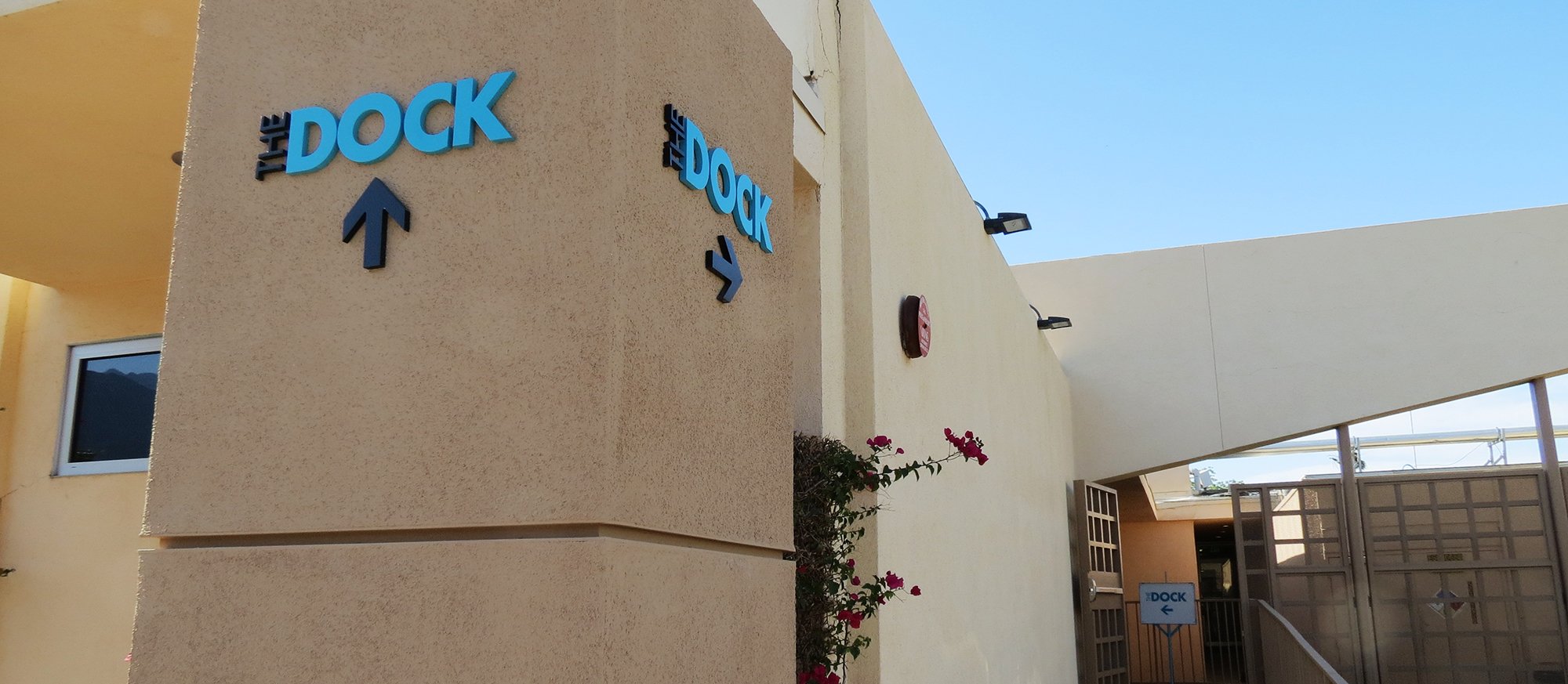On Monday, March 16, Desert AIDS Project is opening a new sexual health clinic for men and women called the DOCK.
“The idea for The DOCK came out of our Get Tested Coachella Valley coalition of community partners, which just completed a very successful first year of getting adults and adolescents tested for HIV,” said David Brinkman, CEO of Desert AIDS Project. “Get Tested Coachella Valley is a ‘Treatment as Prevention’ model, which connects people who test HIV-positive to care and services, benefiting their own health while also making them substantially less likely to transmit HIV to others.”
In addition to HIV testing, The DOCK will later provide testing and treatment for other Sexually Transmitted Infections (STIs) and will offer PrEP and PEP medication therapies to help individuals at higher risk of acquiring HIV to safeguard their HIV-negative status. (See below for more information about PrEP and PEP.)
The new clinic will be open Monday-Friday from 8:00 AM – 5:00 PM. Appointments can be made by calling 760-992-0492 starting March 16. Free and confidential HIV testing is available on a walk-in basis, with no appointment necessary.
The name of the new clinic stems in part from its unique entryway: the loading dock ramp located on the south side of the Desert AIDS Project building. A second factor is the play on words between “dock” and “doc” (doctor).
The program model for The DOCK was developed in collaboration with the California Department of Public Health’s STD Control Branch, the California Office of AIDS, and the Los Angeles LGBT Center. “Our intention for The DOCK is to completely address the sexual wellness needs of our local community, regardless of their ability to pay,” said D.A.P. Medical Director Dr. Steven Scheibel, MD, AAHIVS. “We can’t let the lack of insurance coverage be responsible for a greater spread of HIV or any sexually-transmitted infection.”
PrEP? PEP? What is this alphabet soup?
While a cure for HIV and/or AIDS may someday change this, the human immune system can’t rid the body of HIV, once the virus enters. A bout with the flu might be exhausting and uncomfortable, we know that there’s an end in sight, once the virus clears our system. Not so with Human Immunodeficiency Virus (HIV).
HIV attacks our T-cells – also known as CD-4 cells – using them to make copies of the virus. The good news is that not everyone who becomes infected with HIV will eventually progress to an AIDS diagnosis.
However, if HIV is not properly intercepted through medication and ongoing care, it will destroy so many T-cells that it will advance to AIDS, the final stage of HIV infection.
PrEP – or Pre-Exposure Prophylaxis – helps guard against HIV infection
PrEP is a way for those who do not have HIV to prevent acquiring the virus by taking a daily pill. At present, the only PrEP regimen is Truvada – a combination therapy of tenofovir and emtricitabine – used to treat many who are already living with HIV.
PrEP with Truvada has been endorsed by the Centers for Disease Control & Prevention (CDC) as a “powerful HIV prevention tool and can be combined with condoms and other prevention methods to provide an even greater protection than when used alone.” In a high-prevalence-for-HIV area like the Coachella Valley, people who are HIV-negative should carefully consider whether PrEP might be right for them, as a means of remaining virus-free. However, adherence to the daily pill regimen is important and it should always be remembered that PrEP does NOT guard against possible infection from other sexually-transmitted infections, including Hepatitis C.
PEP – or Post-Exposure Prophylaxis – if you think you may have just been exposed to HIV
Similar to PrEP, a PEP regimen involves antiretroviral medications used to treat an HIV-infected person. However in the case of Post-Exposure, these medicines must be taken as soon as possible – but no more than 72 hours – after the person believes s/he may have been exposed to HIV. The two to three medicines used in PEP stop HIV from making copies of itself and spreading through the body.
PEP must be taken for 28 days – but may not guarantee that someone exposed will not become infected with HIV. It is not a substitute for regular use of HIV prevention methods, such as PrEP mentioned above, or the correct and consistent use of condoms. Anyone prescribed PEP will be asked to return for HIV testing at 4-6 weeks, then at three months, and again at six months after the potential exposure to HIV.
Made possible by funding from Desert Healthcare District/Echo posible por media de fondos de Desert Healthcare District









